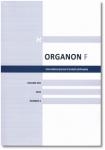Freedom, Power and Causation
Freedom, Power and Causation
Author(s): Thomas PinkSubject(s): Metaphysics, Epistemology, Ethics / Practical Philosophy, Political Philosophy, Political Theory, Early Modern Philosophy
Published by: SAV - Slovenská akadémia vied - Filozofický ústav SAV
Keywords: Causation; chance; compatibilism; freedom; Hobbes; Hume; incompatibilism; law of nature; power; reason; scepticism; Suarez;
Summary/Abstract: Freedom or control of how we act is often and very naturally understood as a kind of power—a power to determine for ourselves how we act. Is freedom conceived as such a power possible, and what kind of power must it be? The paper argues that power takes many forms, of which ordinary causation is only one; and that if freedom is indeed a kind of power, it cannot be ordinary causation. Scepticism about the reality of freedom as a power can take two forms. One, found in Hume, now often referred to as the Mind argument, assumes incompatibilism, and concludes from incompatibilism that freedom cannot exist, as indistinguishable from chance. But another scepticism, found in Hobbes, does not assume incompatibilism, but assumes rather that the only possible form of power in nature is ordinary causation, concluding that freedom cannot for this reason exist as a form of power. This scepticism is more profound—it is in fact presupposed by Hume’s scepticism—and far more interesting, just because freedom cannot plausibly be modelled as ordinary causation.
Journal: Organon F
- Issue Year: 26/2019
- Issue No: 1
- Page Range: 141-168
- Page Count: 28
- Language: English

